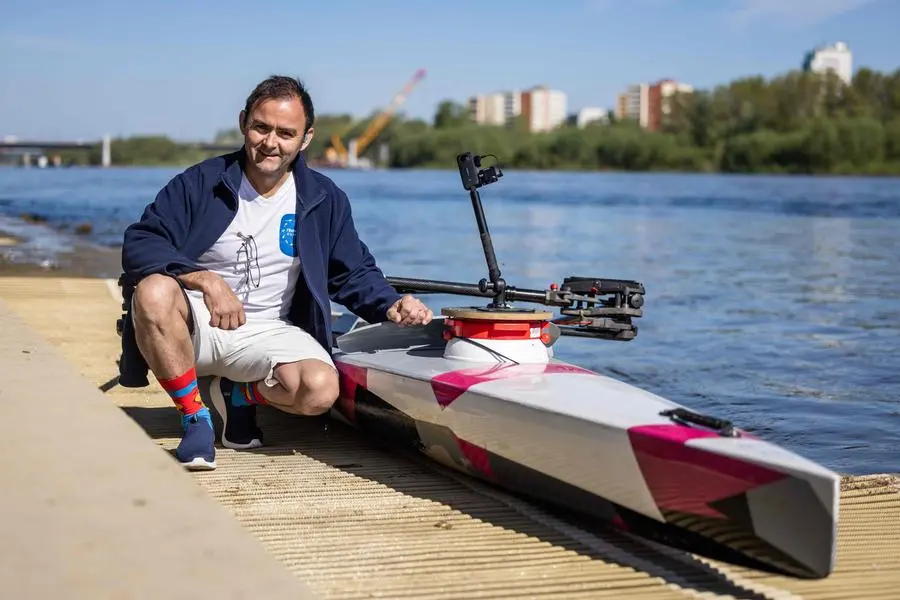PHOTO
An intrepid French traveller embarked on Monday on a solo rowing expedition from Poland to France to shed light on the pollution of waterways of Europe.
Christophe Gruault, 58, set off from Poland's capital Warsaw in a customised rowing boat six metres long and only 60 centimetres wide, with hopes to reach Paris on June 18.
His intended route of 2,023 km will lead through five countries -- Poland, Germany, the Netherlands, Belgium and France -- and along 22 of the continent's rivers.
"The aim of the game is to show that what's beautiful is fragile, and what's fragile needs to be taken care of," Gruault told AFP shortly before departing from a bank of the Vistula River.
Gruault plans to raise awareness by meeting high school students along the way and to contribute to scientific research on what is polluting Europe's rivers and causing them to dry up.
"I'm going to take environmental DNA samples that I'll pass on to the scientists," Gruault said.
The journey is supported by the National Museum of Natural History in Paris, where researchers will study Gruault's samples and observations.
- Environmental disasters -
For Denis Duclos, the museum's director of European and international relations, the expedition offers insight into the condition of Europe's main waterways.
"It will be interesting to take samples before the major cities on the route and after the major cities on the route, in order to see whether the cities have any consequences on the treatment of pollution," Duclos told AFP.
To facilitate the task, the explorer's team equipped his boat with a system for reversing the movement of the oars, allowing the rower to face forward, "a system which is unique in the world," Gruault added.
He plans to row up to 50 km a day, which he said had required improving his physical fitness.
"First of all I needed to balance my body and work on the muscles to create strength, to put on a bit of bulk," Gruault said.
"And then work on the heart, it's an important engine after all".
Pollution in Poland's rivers came into the spotlight last year when nearly 250 tonnes of dead fish were recovered in July from the Oder River that runs through Poland and Germany.
Polish authorities later said toxic algae was to blame, ruling out industrial pollution as the cause.
But German authorities called it a "man-made environmental disaster", saying the algae growth had been sparked by the introduction of salt into the waters.





















